Remembering Martin Wilson MSC
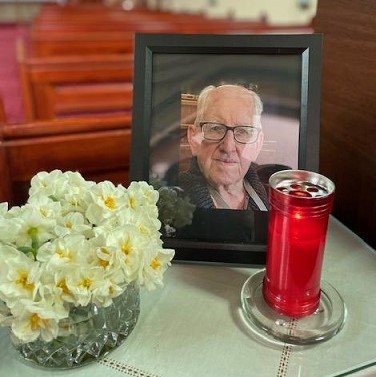
John Bosman led the ‘Sharing of Memories’ liturgy for Martin. As expected, there were special memories shared. These included his tennis and squash skills, his kindness, and stories of being snagged in a river with crocodiles. There were lovely tributes from his students on Martin’s gift as a teacher. Paul Jennings mentioned how grateful he was that Martin taught philosophy starting from the present rather than the past.
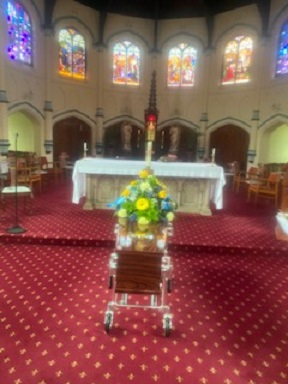
Noel Mansfield sent this memory on the day after Martin’s death. ‘A couple of days ago I went in to see him and pray with him. I decided to say a rosary and after a while, a wave goodbye. I completed the Rosary and some other prayers. Shortly after that Peter Guy arrived and joined us praying with him and close friend, Judy Wolff. Peter had gone down to pick her up at the tram stop nearby. I would like to share this with the Province to let them know of Martin in the final days. He knew he was dying and he accepted it. He did not like being in a nursing home. Cheers to Pauline and the rest of the staff who were very good for him, to myself and other MSC friends.
Leo Wearden presided and preached at today’s funeral. A eulogy was delivered by Judy Wolff, the daughter of Keren Calvert. Keren was Martin’s secretary for 27 years. After lunch, the cortege made its way to St Mary’s Towers.
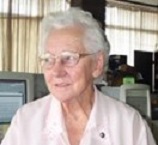
In memory of Keren.
Leo's homily.
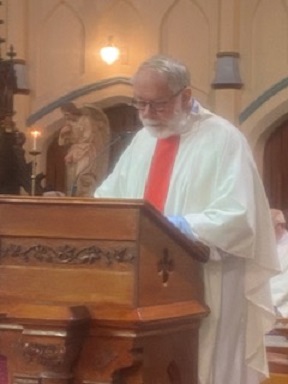
We gather this morning with a sense of loss and sorrow at the death of someone we have admired and loved but also celebrate all that Martin achieved through a long and dedicated life.
I want to pay tribute to Martin for his part in the missionary endeavour with the Aboriginal people of the NT that has gone for well over a century and what he has called the great saga that we are involved in that is as he says the great force stemming from the life, death and resurrection of Christ the Lord.
Born in 1930. Professed as a Missionary of the Sacred Heart 1949. After ordination in 1955 Martin completed his doctorate in philosophy at the Gregorian University. He taught philosophy in the seminaries at Croydon and Canberra and while teaching philosophy at Holy Spirit Bomana PNG he studied social anthropology at the UNPG and completed his Master thesis.
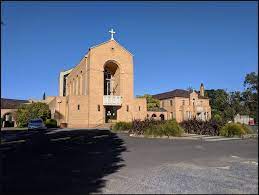
In the mid 1970’s almost 50 years ago I first encountered Martin as we studied his metaphysics course at Croydon. Metaphysics was not so easy for me but Martin also shared his love of literature and poetry and learning and his recent and developing involvement in the MSC ministry with the Aboriginal peoples of the Diocese of Darwin and the new ways that we were being asked to walk in this relationship. He also kept his door open and on more than one night I would find myself drinking his brewed coffee and sometimes with a drop of whiskey in hand learning of our works in PNG and the NT.
The YTU invited Martin to present a new course on Australian Aboriginal society. He presented the complexity of Aboriginal kinship, marriage arrangements, ritual and the richness of the religious life of Aboriginal society. We were introduced to the writings of anthropologists and scholars of Aboriginal societies a number of whom he was in contact with.
By way of preparation for the course Martin had conducted a review of MSC missionary work in the NT. He had then spent some months living alone in a caravan at Peppimenarti in the Daly River. Peppi was in its beginnings as one of the new movements of Aboriginal people in the NT who were leaving the larger mission communities and returning to their homelands.
As well as lecturing at the YTU Martin established the Nelen Yubu Missiological Centre at Nauiyu Daly river. Its aim as described on the cover of its publications was to mediate between anthropology and similar disciplines on the one hand and the richness of Aboriginal culture on the other with the emergence of a church both truly Aboriginal and truly Christian.
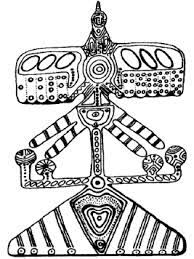
In May 1978 in a series of papers presented at a seminar in Alice Springs and later published in a booklet titled New Old and Timeless Pointers towards an Aboriginal Theology Martin was buoyed by the recent encyclical Evangelii Nuntiandi. it may not be very surprising, he wrote, that the Church finds it should be respecting the art, dance, linguistic idioms of a people she is bringing the gospel to.
But he described it as a real shock to read there what the new attitude was, in the teaching, towards those who practise non-Christian religion.
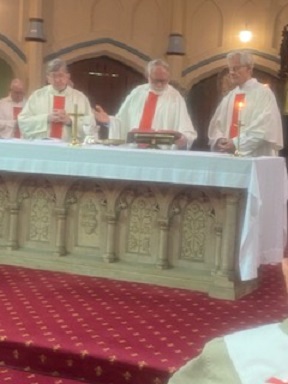
While accepting that the Catholic Church was still tangled in past policies and attitudes in our relationship with Aboriginal peoples Martin took hope in this immense change in official attitudes and wrote we do hope to find the way, the good way in which the Gospel of Christ will be heard with the right accent in Aboriginal ears, will satisfy Aboriginal minds and will call for a response in the deepest parts of Aboriginal hearts and referring again to Evangelii Nuntiandi he wrote that his special focus was to look at the nature and genius, the richness of what he called traditional Aboriginal religion.
Shortly after that on 29 November 1986 in Alice Springs Pope St John Paul II himself was to deliver his famous address to Aboriginal people:
The Church invites you to express the living word of Jesus in ways that speak to your Aboriginal minds and hearts. All over the world people worship God and read his word in their own language, and colour the great signs and symbols of religion with touches of their traditions. Why should you be different from them in this regard, why should you not be allowed the happiness of being with God and each other in Aboriginal fashion
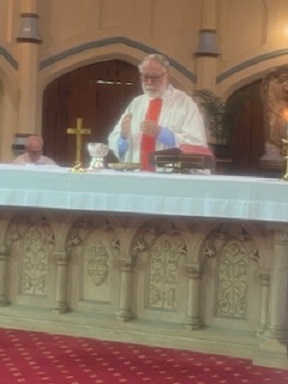
For just on 24 years Martin and Karen Calvert persisted in publishing the periodical Nelen Yubu. This was a truly remarkable work and still remains a wonderful resource for anyone ministering today in Aboriginal communities. From 1978 to 2002 It gave voice to those who were exploring and walking the good way in their ministry with Aboriginal people. The number of people from different experiences and from around the country who contributed is remarkable. Women and men, Catholic and non-catholic have written on a vast array of matters related to this ministry. Though few in comparison a source of hope and particular value were the Aboriginal voices that also were beginning to contribute.
In early August Martin managed to complete a long held desire to have written up his notes on the months he spent at Peppimenarti in the latter part of the wet season of 1976. He was very pleased to be able to send copies with me back to the NT just 6 weeks ago. Titled Early Days at Peppimenarti Homeland Village he includes Harry Wilson’s report on “going home” a collection of photos of the families taken almost 50 years ago of the families involved and the story that Martin often repeated of the group of young girls who reminded him that they were Catholic and were entitled to request Mass. His work was mostly to do with writing and in the world of ideas but Martin continued to ask after these women and members of the Jimarin family as they did after him and though most of them have now passed on the Jimarin sisters sent their condolences in recent days.
Of special significance for Martin in recent weeks was a visit to him at St Joseph’s by Regina Wilson wife of Harry and their daughter. Martin rang to say how touched he was by the short visit embrace and well wishes. I was amazed as well and it was one of those moments when one gives thanks for the wonders that God works. The relationship between the Church and the Wilson family at Peppi has been difficult and virtually since Martin left in the late 1970’s no priest has been allowed to celebrate the Sacraments there. Recently when I asked Regina how she found her way to visit him she indicated that she was presenting a show of her art works in Sydney but had been to the Monastery before many years ago to visit John Leary.
It was a reminder again of the invitation that has been offered by Indigenous people to honour the value that they place on the relationships that they invite us into.
Patrick Dodson rang a few weeks ago on learning of Martin’s illness and asked me to pass on his best wishes which I did and to ask Martin to get the place ready for us with all those other missionaries who have gone before.

As we continue with the Mass to which Martin was so faithful we give thanks for his good life and pray that he now enjoy the peace that the Lord gives and that he continue the good road to eternal life.
As has been said by Indigenous leaders on many occasions that on the good road we not walk in front of the Indigenous people in their spiritual journey and spiritual development but that we walk together as brothers and sisters in Christ and that we be prepared to allow Indigenous Catholics to develop and lead Christian ministry in their way
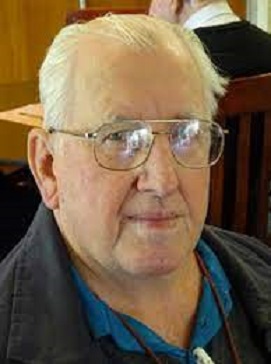
With appreciation to Ben Fleming MSC, Kensington for photo and the text of Leo's homily